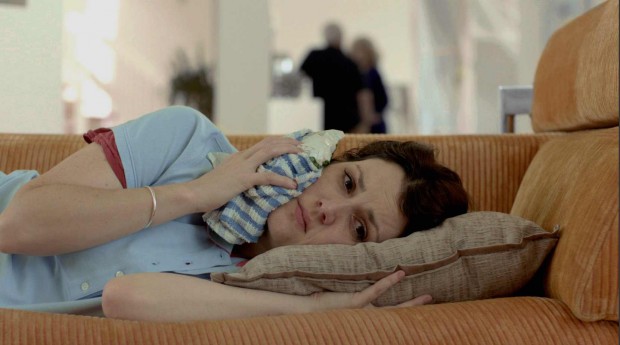
The name might not jump out, yet it’s almost impossible that a reader hasn’t seen Melanie Lynskey at one point or another. The New Zealand actress first came on the scene with Peter Jackson‘s 1994 drama, Heavenly Creatures, and, in the nearly two-decade period since, established herself as one of the more unique actresses working today. Be it a memorable turn in Steven Soderbergh‘s The Informant! or quick appearances in Away We Go and Win Win, she’s one who never fails to leave some kind of mark.
Lynskey‘s been given a rare starring part with this month’s Hello I Must Be Going, a dramedy which allows her to take center stage and command the screen from start to finish. I made sure to start off with the film that granted a nice opportunity to chat, but soon moved into questions about an eclectic career, the experiences it’s brought, and the challenges of turning down a lead role because the script doesn’t work. What resulted was, in my opinion, a fascinating look into “the other side” of being an actor.
The Film Stage: Would you say the film’s production, being on a smaller scale, had any sort of “serene” feeling to it? Did it go smoothly, or was there more pressure because you didn’t have a lot of resources at hand?
Melanie Lynskey: It’s interesting. I mean, it went about as smoothly as possible, and, luckily, Todd — the director — is such a level-headed cat that he didn’t make it crazy. But, you know, there’s always some stress involved when you have so little time to do stuff; there’s always a little underlying panic.
How does that compare to working on a bigger film, like The Informant! or, even, Seeking a Friend, which had two big stars in the lead? Is there a huge difference there?
Yeah, there’s a difference in that, on The Informant! or Seeking a Friend, you get a trailer. [Laughs] A place you can sort of go and escape to; there’s something that’s nice about that, but then there’s also something that I love about those movies where everybody’s just sort of lumped in together, everyone’s uncomfortable, and nobody’s making any money. I like that feeling, but The Informant!… Steven’s set feels like a tiny independent movie, because he’s so loose in the environment and sort of relaxed. It doesn’t feel like a big-budget situation.
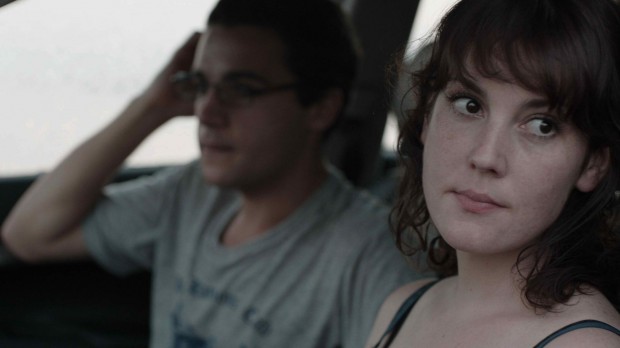
In that case, what particularly made you think that Hello was worth the effort and pulled you in?
It was the screenplay, for me, and the chance to play this character. I just really loved… the movie felt really honest to me, and her progression from this shapeless, sad, depressed person into somebody who’s starting to have an identity and get her energy back — get her life back together — was an interesting thing.
I thought it was interesting how you play a character one could say is fairly “well-off,” financially. She isn’t striving for money or struggling to find a job, so did you find it hard to relate to a character of that sort?
I mean, honestly, I did find it a little difficult, because that’s not the situation that I’m in in my life, it’s not the situation my friends are in, or most people in the world. There is a part of me that was, like, “What do you have to complain about?” [Laughs] You know. But rich people have problems, too. [Laughs]
You just can’t pass judgement on somebody that you’re playing, and nobody wants to be back at home, living with their parents at the age of 35. She wants to be independent, she wants to be somebody who has a life and has their shit together — and she’s not — so I understood that element of it. And, you know, there are times in your life where, from the outside, it looks like everything is fine, and inside you’re actually saying “I’m a disaster.” So, I related on that level.
But was it a difficult character to tap into past that level of relatability, or did you find the screenplay carried enough on the page to dive in from the start?
Yeah, I found the script was very strong, and it gave me a lot to play with. You know, there are times in my life where I’ve felt enormously depressed, so I understood that — and then there are times where I’ve had a crazy love affair and gotten carried away, so there are a lot of aspects of it that I naturally related to.
I think that sort of ties to a quote you once gave where you said you enjoyed being a character actress — but it also felt rewarding to get a film like this, where you used the words “a complete journey.”
Yeah.
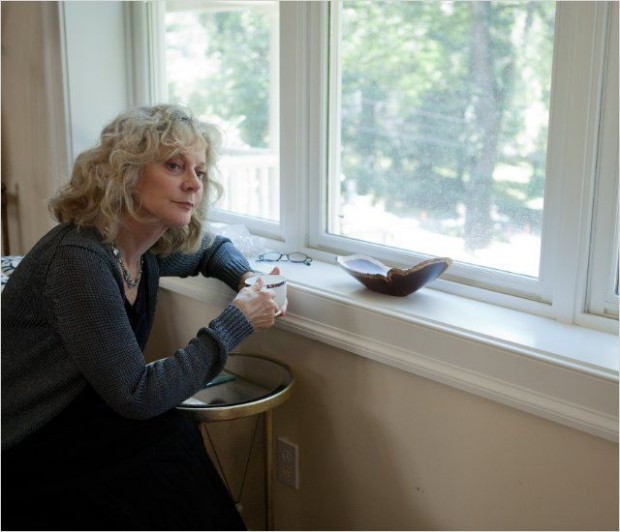
So, I have to ask, do you typically prefer supporting roles? And, if so, why?
I mean, I feel like I just try to make the best choices that are available to me. You know, so I do sometimes get offered lead roles in movies, but, unfortunately, a lot of the time the movie isn’t very good, so I won’t do it. You know, I don’t want to be in a bad movie just so I get the chance to play a lead. So, you know, a lot of the time the best work that’s available to me is in supporting roles, and I enjoy that. I enjoy the challenge of creating a fully-formed person when you don’t have a lot of screentime to do it, but it was nice to just be able to relax and know the script has got me; the whole story is based around this person that I’m playing, so there’s a lot of room to do what you want in a scene and not be focused on making a particular kind of impact.
Is it harder to work in Hollywood that way, though? Obviously this isn’t a Hollywood film, but is it still difficult to turn down a lead role?
Not really. I mean, when I was doing The Informant!, Matt Damon said something to me that I really have lived by ever since. He was, like, “At the end of your career, when someone looks over your filmography, all they remember is if the movie was good or not. They’re not saying, “Oh, he got play that crazy character!” Or, “Oh, all those people were in that movie.” He says “all people know is if the movie was good or not,” and all that has to do with whether the script is any good; so, if you consistently choose good scripts — whether you’re in three scenes or every scene — you’re going to build a very strong resume. At the end of your life, you’ll be in a lot of movies that you can feel proud of, and it’s such a nice feeling to be a part of something that you really believe in; a part of a movie that you think is really good. So I’ve just tried to do it, even if it’s just a couple of scenes. If I think the movie is good, I’ll do it.
Your filmography has a good balance between film and TV — on the latter side, you have a long run on Two and a Half Men and, for instance a brief stint on The Life and Times of Tim — so do you prefer one medium over the other? Or is it just all acting?
I feel that way to a certain extent, but most of the television work that I’ve done was on a sitcom, which feels like its own… it feels like an alien art form. [Laughs] It doesn’t, you know, it’s like its own separate thing. But, yeah, if you’re doing an hour-long drama or a single-camera comedy, then it is “all acting,” but a sitcom is like a completely different world.
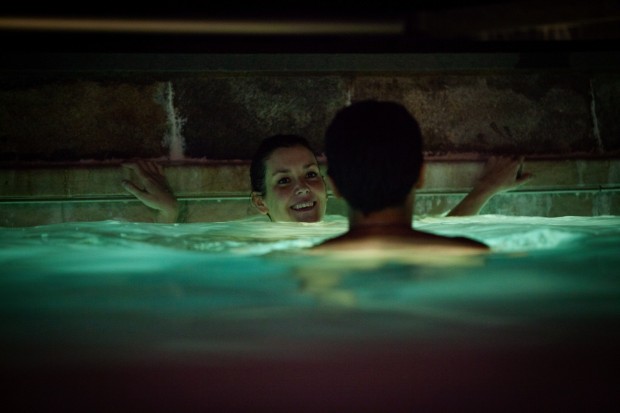
Director-wise, then, do you feel a big difference when you go from a legend, like Clint Eastwood, to a newer filmmaker, such as Todd Louiso? You talk about how the vibe on sets are very different but, at the same time, it is the same profession — so is there a different feeling when it comes to a big name and small name?
I mean, it depends; every director is so different, you know? You build your own, individual relationship with each person, and it’s such a different thing. Everybody has such a different style. Clint Eastwood has been directing forever — and is a great, great director — but he barely says anything. The magical thing about the way that he works is that he creates an environment that feels like a church, kind of — like it feels so sacred and comfortable — and everybody’s just relaxed, doing the best work they can do. It’s weird, there’s not a lot of talking going on or communicating with him.
And then there are some directors who talk and talk and talk and talk, like Sam Mendes; you talk about everything and go over everything. So everybody’s very different, and I’ve done movies with first-time directors who are just on it, and amazing. Then, sometimes, I’ve done movies with people who have directed a few movies, and you’re just, like, “I don’t know how to communicate with you; don’t know what you’re asking me to do right now.” It’s like a relationship. [Laughs]
You recently did The Perks of Being a Wallflower with Stephen Chbosky, the book’s author and a debut director; in addition, you made Heavenly Creatures with Peter Jackson less than ten years after his first feature. Is it interesting to have that early experience with a filmmaker of the latter sort, and then to see them move on to much bigger things?
It was funny, because that was my first job, ever, and I thought “directors are amazing and movies are great!” Then, you know, I went on to do some movies that were… different, and not as great. [Laughs] With not-as-great directors, and I was, like, “Peter Jackson is maybe special.” But, yeah, I feel that was a very singular experience, and it’s crazy when you see people that you’ve worked with go on to be multiple Oscar winners and have these crazy careers. It’s super exciting.
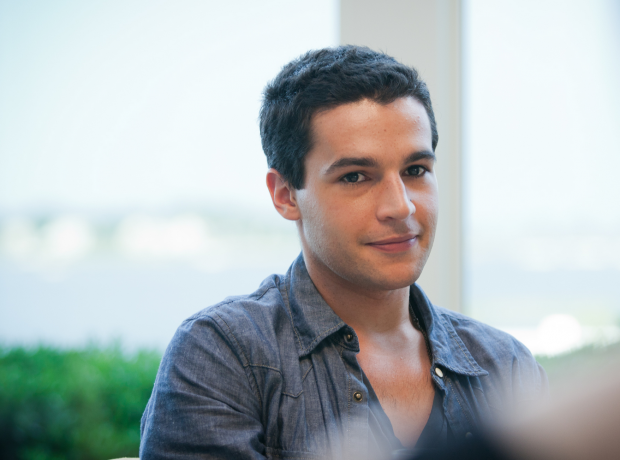
I find your career fascinating, because you bounce from first-timers to such huge names. Going forward, do you actively think about the director? If it’s a first-timer, do you try and gauge their talent?
I think you just… well, for instance, this year I have done two movies, and one of them was with a first-time director — Thomas Beatty — and, so my meeting with him was just trying to gauge if I felt comfortable with him, if I felt like he was going to work in a way that I could be open to. And I loved that script, I was obsessed with that script, so I really wanted to do it, we had a really good meeting, and I loved working with him, as it turned out.
Then the other movie was with David Wain, and I’m so obsessed with Wet Hot American Summer — and I’m obsessed with his movies — so I literally didn’t even read that script before I said “yes.” I just was, like, “that’s a director I am desperate to work with” — and, luckily, I liked the script. [Laughs] The part was really funny, but I just said “yes, yes, I’ll do anything to work with that person,” and there was no “well, let me see how I feel…” He literally was on my short list of dream directors. Like, my top five directors I wanted to work with.
I like going back-and-forth between people who have a lot of experience and people who are just sort of beginning. You’re sort of always on shaky ground a little bit and having a new experience.
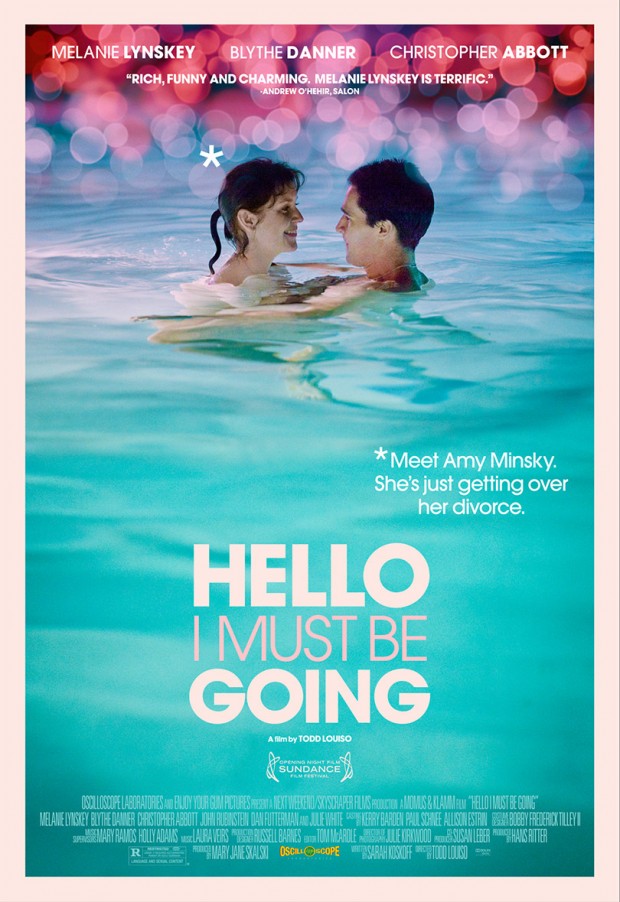
Hello I Must Be Going opens in limited release on Friday, September 7th.

